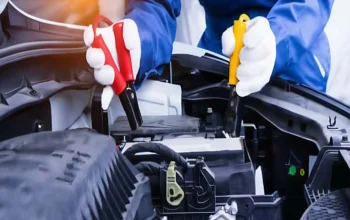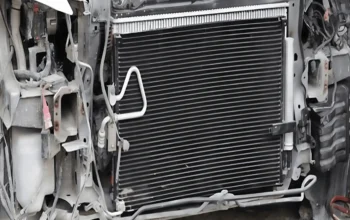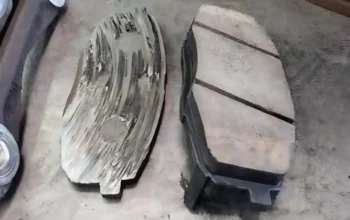Ever been confused about how long it actually takes to change brake pads? You’re not alone. Whether you’re planning a DIY weekend job or heading to your local mechanic, the time it takes can feel like a mystery. Some say it’s quick, others say it’s a full-day headache. So, which one is it?
Let’s break it down—from what affects the brake pads time, to how long you can expect for both DIY and professional jobs, and how to know exactly when replacing brake pads is necessary.
Table of Contents:
How Long to Change Brake Pads?
When it comes to changing brake pads, time is more than just a number. It depends on your experience, the tools you use, and whether you’re doing it yourself or leaving it to a pro.
- Mechanics usually take 30 minutes to an hour to complete a standard brake job.
- DIYers might need two to three hours, especially if it’s your first time.
But it’s not just about unscrewing and replacing parts—there’s a process to it. Understanding what’s involved helps explain why this seemingly small task can take a while.
1. Steps a Mechanic Takes
Professional mechanics don’t mess around. They’re trained to handle a brake system replacement smoothly:
- Remove the tire and wheel
- Remove the caliper and worn-out brake pads
- Check the rotor and other parts for wear
- Install new brake pads and reassemble
- Perform a quick test drive to confirm the job’s done right
With the right tools and routine workflow, they can knock it out fast without cutting corners.
2. What DIY Brake Pad Replacement Involves
Doing it yourself? Here’s what you’re in for:
- Lifting the car with a jack on a level surface
- Removing the wheel
- Taking off the caliper and old rotor if needed
- Using a C-clamp or caliper tool to retract the piston
- Installing the new brake pad (don’t forget to apply copper grease on the edges!)
- Reassembling everything and testing the brakes
If you’re not familiar with car maintenance, each of those steps could take longer. But hey, with the right tutorial and some patience, it’s totally doable.
What Affects the Time It Takes?
You might be wondering: Why does it vary so much?
Several key factors can influence the time it takes to change brake pads:
1. Experience Level
A seasoned DIYer or mechanic can work much faster than a beginner. Confidence matters.
2. Tools & Setup
Having the right tools (like a breaker bar for stuck bolts or a caliper compressor) saves a lot of time. So does working on a clean, safe surface.
3. Condition of Your Brake System
If the rotors are rusted or calipers stuck, expect delays. Some jobs go smooth, others… not so much.
How Long Should Brake Pads Last?
Now that you know how long it takes to change them, let’s talk about how often you need to.
Brake pads typically last 30,000 to 70,000 miles, depending on:
- Driving habits: Heavy braking wears pads faster
- City vs highway driving: Stop-and-go traffic is harder on brakes
- Vehicle weight: Heavier cars wear pads faster
- Pad quality: Premium pads tend to last longer
- Regular maintenance: Keeping the system clean helps extend brake pad life
In some cases, brake pads might last over 100,000 miles, especially with careful driving and regular checks. But for others, pads could wear out in just 20,000 miles.
5 Signs It’s Time to Change Your Brake Pads
Not sure when it’s time to replace them? Your car will tell you. Watch for these signs:
1. Squealing or Screeching Noise
That high-pitched sound when braking is a built-in warning tab scraping the rotor.
2. Grinding Sound
A deep grinding sound means your pads are gone—metal is now scraping metal. Time to act fast.
3. Vibration When Braking
If your pedal or steering wheel shakes, your rotors may be damaged from worn-out pads.
4. Brake Light On
Many newer cars have a brake pad indicator light. Don’t ignore it.
5. Thin Brake Pads
A quick visual inspection can help. If they’re less than ¼ inch thick, it’s time for a change.
Risks of Delaying a Brake Job
Ignoring those sounds or skipping maintenance might not feel like a big deal now, but it can quickly turn into something serious:
1. Reduced Braking Efficiency
Worn brake pads take longer to stop your car, raising accident risk.
2. Rotor and Caliper Damage
The longer you wait, the more damage spreads. Rotors, calipers, and even your brake fluid can be affected.
3. Increased Repair Costs
Letting the pads grind down too far turns a $100 job into a $1,000 nightmare.
4. Total Brake Failure
Yes, it can happen. Worn-out pads eventually stop working altogether, risking your safety and others on the road.
Pro Tips for Changing Brake Pads
Planning to do it yourself? Here are a few tricks to make your brake job easier:
1. Use a Jack on Level Ground
Stability matters when working under a car.
2. Keep the Guide Pin Still with a Spanner
This makes removing calipers much easier.
3. Break Stuck Bolts with a Breaker Bar
A longer handle gives you more torque.
4. Clean Off Rust with a Wire Brush
Rust buildup affects brake performance and pad seating.
5. Use a Caliper Compression Tool
This helps retract the piston easily without damaging it.
6. Grease the New Pads
A little copper grease on the edges and back helps reduce noise and improve fit.
Let a Pro Handle It? Here’s Why That’s Okay
Not everyone enjoys wrenching on their car—and that’s fine! Taking your vehicle to a certified mechanic ensures the job is done right the first time. They have the tools, the experience, and they’ll check the full brake system during the job.
Shops like Meineke often offer deals on brake pad replacements and full inspections. It could save you time and headaches, especially if you’re not 100% comfortable with the process.
Final Thoughts
So, is changing brake pads fast or frustrating? The answer is: it depends. If you’re confident, well-prepared, and have done it before, it can be quick and satisfying. But if it’s your first time or your system is a bit rusted, be ready for a longer session.
Whatever route you choose—DIY or professional—don’t ignore the signs. Replacing brake pads is one of the simplest and most important ways to keep your car safe.
What do you think? Let’s get started today.






